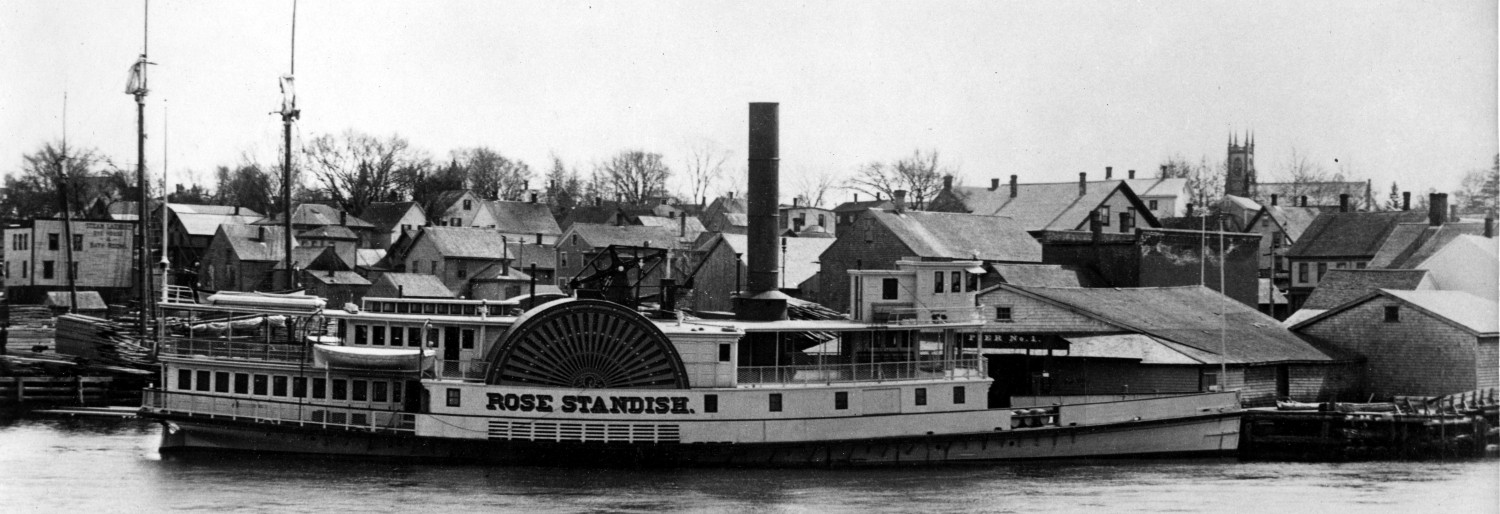1883 saw perhaps Calais’s most notorious murder when Herbert Eaton, ne’er-do-well heir to one of the Eaton family’s lumbering fortunes, shot his brother and business partner Joseph and a friend Samuel Kelley for no reason other than he was apparently too drunk to know or care what he was doing. He surely would have shot another man had not if Herbert’s next victim dived out the door of the family’s business office while Herbert was attempting to dispatch Joe and Sam. The shooting occurred March 20, 1883, and a complete account of the affair can be found here: Murder of Sam Kelley
The short version is as follows:
Herbert Eaton’s father J. Emerson Eaton died at a young age in 1869 after acquiring a fortune in lumbering in New Brunswick and Washington County. He was said to be the richest man in New Brunswick at the time. Herbert and three of his brothers moved to Calais after their father’s death to run the business then called Eaton Brothers although Herbert also dabbled in dry goods and had stores on both sides of the border. By most accounts Herbert was more interested in drinking, hunting and spending daddy’s money on traveling to exotic places than in the family business.
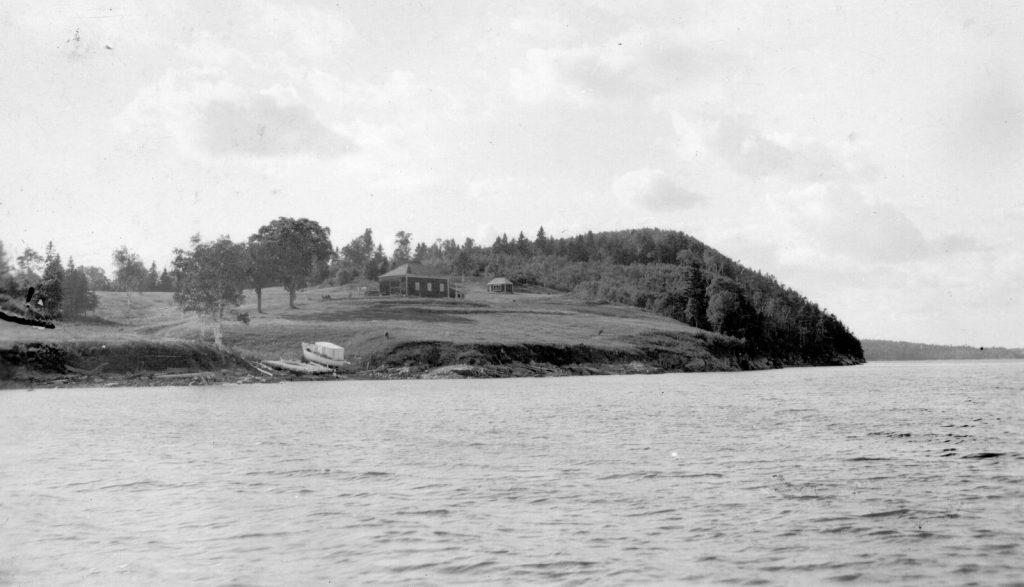
Herbert had no need to concern himself with such trivial details as earning a living. He had inherited a fortune and owned one of the most beautiful properties on the river, Barbour’s Beach in Red Beach, now known as Smuggler’s Cove, which many recognize as Frank Fenderson’s former home, seven miles south of Calais. The photo above shows the property before Frank owned it. A lifelong bachelor Herbert threw wild and exotic parties, some claimed debauches and entertained the “lively crowd” of the Valley’s upper crust. He was well connected politically as the lumber interests ran both Calais and St. Stephen.
On March 20, 1883, Herbert’s free and easy life seemingly all came to an end when he shot his brother Joe and friend Samuel Kelley. Some national papers reported that Herbert, said to be the best shot in the valley, was simply trying to prove he could shoot the buttons off Kelley’s shirt without injuring him. This seems unlikely given his comments at the time of the shooting. In the end his brother recovered, and Kelley lingered for a couple of days before dying. After the shooting Herbert took to his horse and rode at speed to his Barbour’s Beach home where he stayed until an agreement was reached on bail. He then turned himself in, was bailed out and returned to Barbour’s Beach. Herbert was doubly unfortunate, Kelley died and Maine had only two months earlier reestablished the death penalty for murder. A feeble attempt to rearrest Herbert on the new, more serious charge failed because the authorities gave Herbert plenty of advanced notice and he rowed across the river to Canada before the authorities arrived at Barbour’s Beach to ask him to surrender. Did the authorities aid Herbert in his escape? While the evidence is murky Herbert signed a Power of Attorney to his brother Bradley to allow the company to continue its business affairs while Herbert was on the run. The notary public who witnessed this document was Calais’ mayor Boardman.
Herbert got as far as Truro Nova Scotia where the best shot in Washington County tried six times to shoot himself and did not manage to inflict a life-threatening wound. After a period of recovery in Canada and lengthy negotiation with local authorities, at which his remorse was claimed to be established by his failed attempt at suicide, a deal was struck, and Herbert returned to be charged with manslaughter. He paid a $1000 fine and did not spend even a day in custody. Did the deal stink? Of course. Had Herbert gotten away with murder? Most thought so. The distance between the “drop” from the gallows and a thousand dollar fine is light years and this did not go unnoticed.
The Lewiston Sun coverage of both the shooting and the subsequent plea agreement was representative of the indignation expressed by many.
Lewiston Sun March 24, 1883:
CALAIS FAST YOUNG MEN
The Murderer of Kelley Still at Large
The Bloody Climax off a Career of Plenty of Money and Plenty of Champagne
That Maine should have one murder and another affray almost a murder within n few weeks after the re-enactment of capital punishment is somewhat startling. Both cases are due to rum.
The flight and escape of the Calais murderer is not very creditable to down east police surveillance and intimations are forthcoming that the man who so brutally shot Kelley on Tuesday at Calais is too rich to be hung. A Calais dispatch says that the opinion in Calais is that Herbert Eaton who fatally shot Samuel Kelley Jr left for parts unknown sometime after being bailed out Wednesday night. The future course of the authorities will be closely scrutinized as it is likely all the influence of neat wealth and social and political position will be brought to bear to shield Eaton from conviction. The authorities say Kelley made no deposition. Eaton has always had an abundance of money enabling him to indulge any taste or fancy.
He drove the fastest horses that money could buy and allowed no man to compete with him on the road. Sober old farmers jogging home from a visit to the city when they heard a tremendous rattle of wheels behind them knew that “Herb” Eaton was approaching and that they must get out of the way. They generally drew onto the ditch and waited for the reckless fellow to pass.
Eaton has had for some years an elegant summer residence on the river seven miles below Calais where he entertained his friends in sumptuous style purchasing everything that the market afforded. He always kept a huge force of servants who were usually dressed in uniforms on special occasions. Eaton delighted in surprising his guests by dressing his servants in elaborate costumes representing the habits of the various Asiatic nations. One day he would lay out a large sum of money in Japanese costumes and shortly after these would be changed for the Turkish dress. A lady who formerly resided in Calais speaks of the picturesque appearance of the servants the last time she drove by the place. On this day they were all arrayed in spotless white with blue turbans on their heads. Eaton was the leading spirit of a circle of dissipated young men who strove to emulate his careless gaiety and they never appeared to enjoy themselves without “Herb”.
The Official Procedure
Soon after the death of Kelley Wednesday evening a warrant was issued for the arrest of Herbert Eaton on charge of murder. The officers proceeded to his country house at Barber’s beach to which it is understood be had returned after his release on bail Wednesday night but after diligent search failed to find him. No reward has been offered for the fugitive although the authorities profess to be doing their duty. Coroner Lincoln of Dennysville held an inquest upon the body of Samuel Kelley Jr the victim of the shooting affray Friday. The coroner and jury held a session Friday afternoon with closed doors but did not finish their labors. The session was continued till Saturday. Nothing yet has been learned to indicate the result of the investigation. Herbert Eaton is still at large and there is no clue to his whereabouts. Another Calais dispatch says Sheriff Balcom, City Marshal Smith, County Attorney Rounds with a posse of six men arrived at Eaton’s summer residence about ten. After a short delay they were admitted and made a complete search of the entire premises but found no trace of Eaton. The only occupants of the house being Eaton’s child, a man and a young woman with whom Eaton is said to have had intimate relations for some years.
Kelley’s funeral occurs on Sunday. He leaves a widow and daughter. Joseph Eaton will recover. Hundreds of rumors are afloat but are so contradictory no reliability can be placed in them. The whole affair remains shrouded in mystery.
If anything, the Sun was even more outraged when four months later Herbert returned from Canada after his attorneys had negotiated a plea deal which reeked of big money influence and corruption.
1893 October 9, 1893, Sun Journal Lewiston
The Calais Murder Case
Last March Herbert Eaton a fast and rich young man in Calais in a drunken debauch shot and killed Samuel Kelley Jr. It did not seem to be a case in which leniency to the prisoner would be anything less than cruelty to the public but strange to say the aristocratic ruffian is indicted simply for manslaughter and gets off with a sentence of $1000 and costs. Judge Danforth in delivering the sentence indicates that he was puzzled that the accused was not indicted at least for murder in the second degree. The Judge is not less perplexed than the people. Perhaps the rich young scapegoat did not know it was loaded or perhaps he did not know that he was loaded. But if the facts in the case are substantially as hitherto published, we must conclude that to get beastly drunk and shoot a man dead without provocation is not a very grave offense at least in Calais.
We have always wondered what happened to Herbert after his day in court. Was he ostracized by the community, shunned by polite society, his reputation in shreds and doomed to live a hermit’s life at Barbour’s Beach without friends or family? Not a bit of it. With the assistance of Newspapers.com we were able to piece together Herbert’s life after he took the life of Sam Kelley.
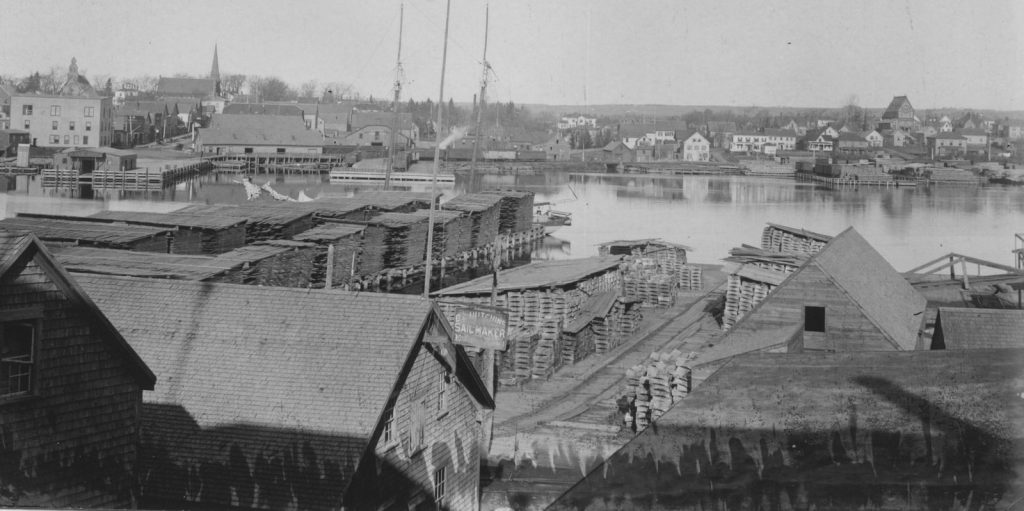
About a year after his sentencing, his uncle Henry F. Eaton, former partner of his father and owner of another large Calais lumbering concern, bought out his nephews. Herbert must have come into a large sum of money to add to what his father had left him for we next find him in Baltimore on November 7, 1885, according to the Baltimore Sun, on the schooner Lelia with his brothers Charles and Albion. Perhaps he had taken up traveling again but even idle recreation away from home could be dangerous for Herbert. On a trip to Africa just before the shooting of Sam Kelley Herbert had trained his gun on a flock of sacred birds in Africa bringing down quite a number and incensing the locals who flocked around him with the intention of doing him violence. Only a handful of gold coins saved him from the mob which was most unfortunate for Sam Kelley.
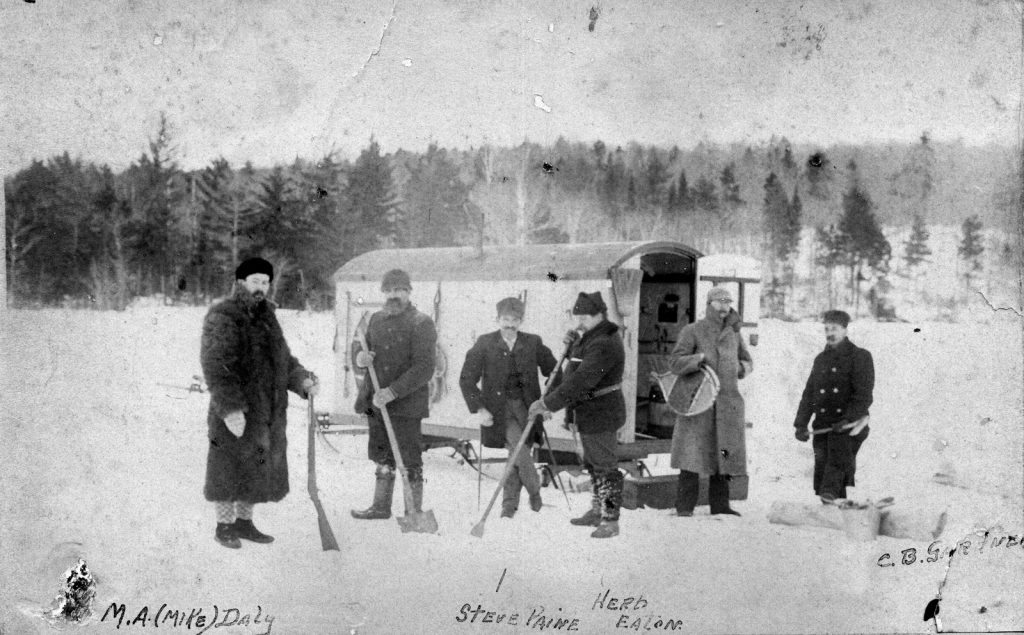
While at home, Herbert remained an avid sportsman. In March 1890 the Pittsburg Massachusetts Sun reported that its president had become friends with Herbert on the salmon fishing trip the year before and had received by express from Herbert “a big Tocque, a fish as fine as a salmon and most delightful fare for Lenten season.”
Two years later in the summer of 1892 a writer for the Pittsfield Sun wrote a very glowing article on a fishing trip from “Bachelor Eaton’s home” in Red Beach down the St. Croix and into the bay on Herbert’s lovely yacht the Irene. Also on the trip were a number of Calais notables who seemed to have no qualms associating with Herbert. His brother Joe was also in the party and surely still bore the scars of that later afternoon in 1883.
Fred Keene in his history of Red Beach refers to Herbert as “a pioneer in the movement to stock the lakes of the county”.
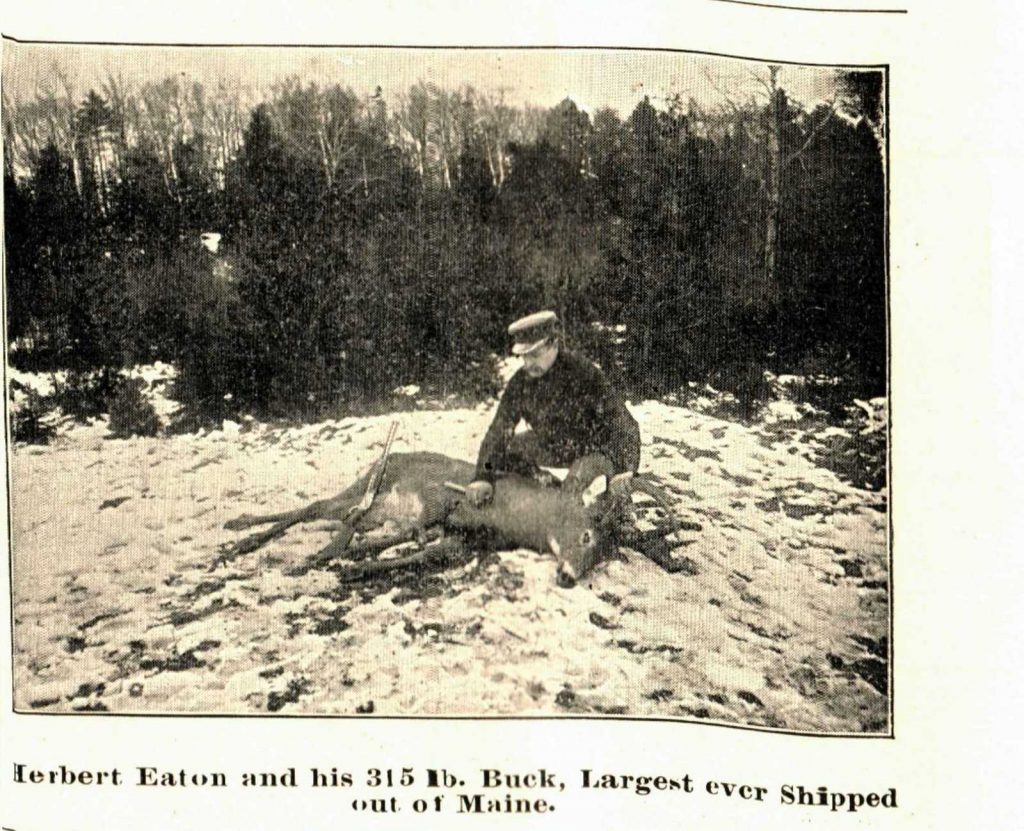
When Herbert wasn’t hunting sacred birds in Africa he was hunting deer in Washington County. He is seen above with a 315-pound buck which he may have shipped to Boston, a common destination for deer in the late 1800s as venison was considered a delicacy in the restaurants of Boston and New York.
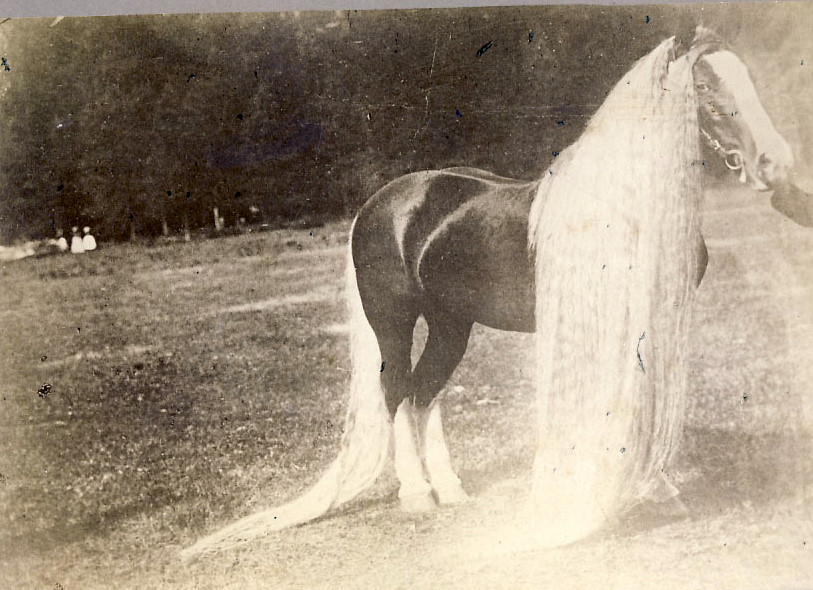
Herbert could hardly have been called a sportsman if he hadn’t been interested in fast horses and horseracing, probably the most expensive of all sports of his era. He owned racehorses and the famous stallion Linus which had been exhibited throughout the country. When Linus died in 1894 the Boston Transcript reported “The owner, Herbert Eaton, is having the skin mounted, the work is being done by Charles Newell of West Newbury at Calais, Maine and when completed it will be turned over to Maine State College officials.”
In all of the local directories of the late 1800s and early 1900s Herbert is listed as “Herbert W. Eaton, farmer Main Street 7 miles out.”
In 1900 Herbert was 52 and perhaps his health, financially and otherwise, had begun to deteriorate. He is mentioned once in that year at Grand Lake Stream fishing with a group of locals but the Bangor Daily reported in 1900 that his brother, Bradley Eaton “has purchased from Herbert Eaton the beautiful sailing Yacht Irene.” After some renovations the paper goes on to say of the Irene “When completed she will be one of the prettiest yachts ever seen in this section and the prettiest ever built in Calais. She will retain the name Irene.” In 1903 Herbert was in a dispute with the city over $600 in taxes which the assessor had refused to abate. He must still have retained some political pull because the City Council overruled the assessor and granted Herbert the abatement. Still for a man who had inherited the equivalent of millions the sale of his boat and the tax dispute could suggest his financial situation may have deteriorated although it is equally possible he sold his yacht because he was no longer well.
After 1903 there is nothing more reported in the papers concerning Herbert Eaton until his death in 1913. After being in the news consistently for decades Herbert was no longer newsworthy. The deaths of members of the Eaton family were usually reported at least as far as Boston, sometimes New York. Not so Herbert who warranted only a short column in the Calais Advertiser.
Calais Advertiser November 5, 1913
Herbert W. Eaton died at his home on Monroe Street, Monday forenoon. His death was not unexpected as he had been in poor health for a long time and has been confined to his house since April last. Deceased was the son of J. Emerson Eaton and was born in Milltown N.B. July 4, 1848. While for several years he has resided quietly at his home and at his farm in Wilson’s Beach, in his younger years he was a great traveler., visiting many parts of the world, among them Japan, then just emerging from semi-barbarism, and Mr. Eaton had many stories of his varied experiences in the Orient and in other sections of the world visited-stories which he told in a delightful manner. Mr. Eaton was a man of generous impulses and many good qualities, and numerous friends will sincerely regret his death. He is survived by two brothers, Joseph E. of Calais, Bradley L. of New York City and one sister Miss Mary Josephine Eaton of Boston. The funeral services will be held this afternoon, and the interment will be in the family lot in the Rural Cemetery.”
Was the Advertiser damning Herbert with faint praise? It’s hard to say but obituaries of this era were usually more flattering even if the deceased was a cad, much less a murderer and a murderer Herbert certainly was. As the judge implied at sentencing a charge of second degree murder was the very least one could have expected given the facts of the case. It is fair to say that had the murder been committed by anyone but the scion of a very wealthy local family the charge would not have been manslaughter and the sentence would not have been a fine. There may well have been a hanging.
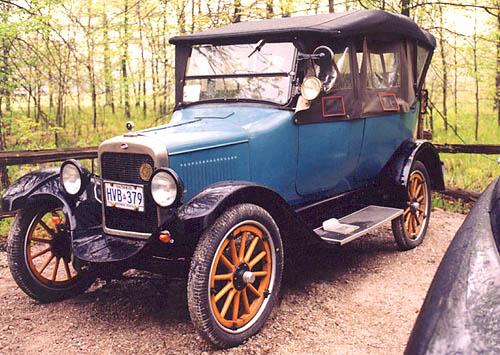
After his death the property at Barbour’s Beach, sometimes called Wilson’s Beach and today Smuggler’s Cove, was sold to J.N. Willys of Toledo, Ohio and Willys auto manufacturing fame. He planned to use it as a summer home. However on June 11, 1921 the Bangor Daily reported
“The Herbert Eaton house and buildings eight miles below Calais, one of the beauty spots that dots the Maine coast, was swept by fire yesterday and the buildings were burned to the ground.”
Note: The reinstitution of the death penalty for murder just before the shooting of Sam Kelley was short-lived. The legislature voted to abolish the death penalty in Maine again in the late 1880s and it has not been reinstituted.
